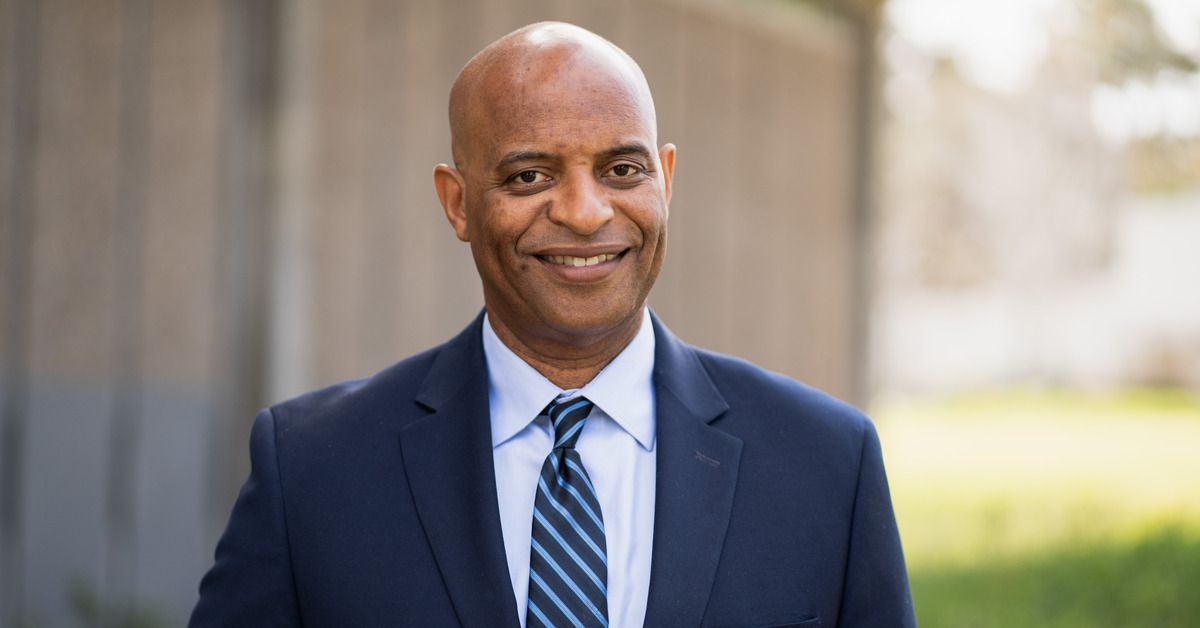(Re)introducing John
Transformation continues under the leadership of new vice chancellor for Health Sciences, John M. Carethers.
Published Date
Article Content
John M. Carethers, MD, is many things: physician, scientist, teacher, mentor, husband, father, friend and role model.
He’s also the new vice chancellor for Health Sciences at UC San Diego.
The Michigan-born gastroenterologist has largely split his career between the Midwest and Southern California, including a stint as a professor in the Division of Gastroenterology at UC San Diego School of Medicine. He returns 13 years later to lead the growing academic and clinical enterprise.
As vice chancellor, Carethers will drive the overarching strategy for all of Health Sciences, fostering research collaborations, expanding the health care system, enhancing educational opportunities and bolstering philanthropic support. His collaborative approach and modern point of view are well suited to UC San Diego’s vision and pursuit of innovation.
A quick scan of his CV makes the following clear: Carethers is endlessly hardworking, disciplined, curious, courageous and always challenging himself and his field to be the best.
But talk to his peers and another theme emerges: Carethers is a people person. He knows names and faces. He visits clinical sites and faculty offices. His door is open and he is generous with his time.
“He makes you feel like you’re the only person in the room,” said Thomas J. Savides, MD, chief of the Division of Gastroenterology at UC San Diego School of Medicine. “John has this rare combination of extreme intelligence, integrity and warmth that makes him a unique leader. You can’t help but want to be more like him.”
These features go beyond personality. They are fundamental to Carethers’ approach to leadership. It’s what propelled him through the ranks during his initial 15 years at UC San Diego, and guided his recent 13-year tenure as chair of the Department of Internal Medicine at University of Michigan Medical School.
“In order to lead, you first have to listen,” said Carethers. “You have to understand the issues and gain people’s trust.”
In the next few months, Carethers aims to do just that. While getting to know the new schools, buildings, faculty and staff, he’ll gather ideas for the collective vision of Health Sciences.
“No one person can fix every issue,” he said, “but I will certainly listen and try.”
“John has this rare combination of extreme intelligence, integrity and warmth that makes him a unique leader. You can’t help but want to be more like him.”
Rising star
Carethers’ story begins in Detroit, Michigan, where he was born the 10th of 12 children to parents James and Eleanor. In the Carethers household, education was key. Carethers’ dream of becoming a doctor was inspired by early explorations of the family’s encyclopedia collection. Over the years, the Carethers siblings have collectively obtained 17 college degrees, all earned through the support of scholarships, grants and loans. John Carethers continued to live at home and work nearly 30 hours a week to put himself through college at nearby Wayne State University, where he also attended medical school.
This strong work ethic and fervent curiosity carried into his clinical studies. Carethers finished at the top of his medical school graduating class, and subsequently matched at the nation’s leading internal medicine residency program: Massachusetts General Hospital (MGH). It was there, through complex patient cases and early exposure to clinical research, that Carethers narrowed his focus to gastrointestinal oncology and committed to pursuing a career in academic medicine.
These decisions led to his first return to the Midwest, where he joined University of Michigan’s gastroenterology fellowship program. The move would prove to be influential in many ways, particularly in introducing him to two important figures: his lifelong mentor and his wife.
Clement Richard Boland, Jr., MD, was already a world leader in hereditary colon cancer research. His lab was flourishing amid recent revolutions in genetics and molecular biology, which generated new research tools that Carethers picked up with ease.
“John was already a superb physician when I met him, but it wasn’t long before he was also a fantastic translational researcher,” said Boland. “He dove head first into the trickiest questions in tumor biology and soon made a series of key observations that fueled both of our careers.”
When Boland was recruited to UC San Diego in 1995, he knew he wanted to bring Carethers along with him. But by this point, the rising star was traveling as a pair.
Only days into his fellowship, John met Denise, a nurse-practitioner who was also training at the university. Days before his fellowship ended, the two were wed.
“So it was really Denise that had to be recruited,” said Carethers. But San Diego soon became the couple’s home and the birthplace of their four daughters, affectionately known as ‘the Carethers girls.’
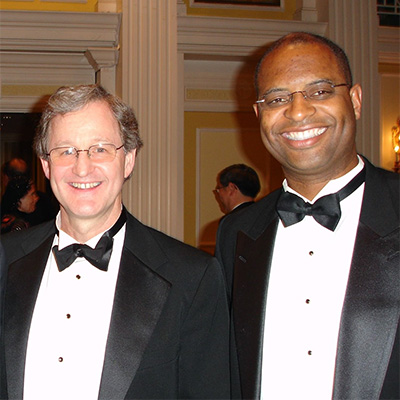
“He absolutely adores his wife and daughters,” said Boland, who became a close family friend during this period, often babysitting the girls and eventually becoming godfather to the youngest. “We shared a common belief in the power of family, and the ways it can ground you through the ups and downs of academia.”
From the start, Carethers’ career at UC San Diego seemed destined to skyrocket. His research was booming, following early discoveries on DNA mismatch repair and its effects on tumor progression. This work expanded to include tumor genetics, biomarker discovery and the role of inflammation in molecular pathology. More recently, Carethers has pioneered studies on racial disparities in colorectal cancer, studying the biological and social risk factors contributing to patient outcomes.
Carethers also maintained a clinical practice during this time, continuing to treat high-risk cases of colon cancer and patients with familial genetic syndromes. In the classroom, his work with students resulted in numerous teaching awards.
So when Boland was recruited out of state, Carethers became an obvious candidate to take his place as chief of the Division of Gastroenterology. As the youngest faculty member to assume the role at UC San Diego, Carethers quickly proved his potential as a leader in academic medicine.
During his tenure from 2004 to 2009, Carethers doubled the division’s faculty size, its clinical revenue and its National Institutes of Health grant portfolio. The gastroenterology fellowship program grew significantly, and the division’s scope expanded to include pediatric gastroenterology. Carethers also secured the inaugural Gastroenterology Center grant which allowed the division to partner with other local institutions, including the La Jolla Institute for Immunology, The Scripps Research Institute and Sanford Burnham Prebys Medical Discovery Institute.
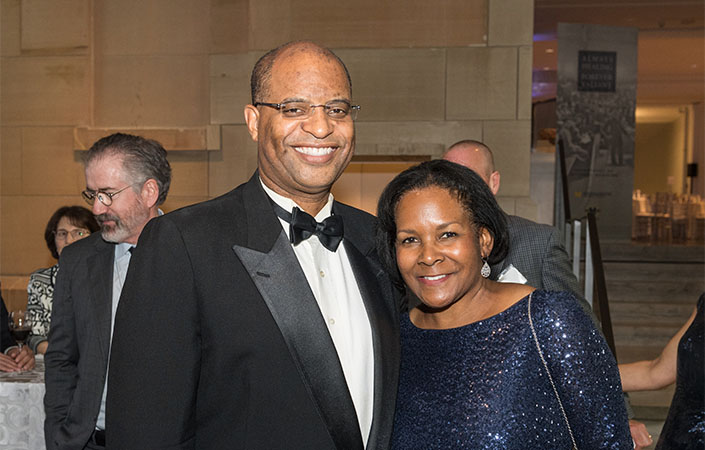
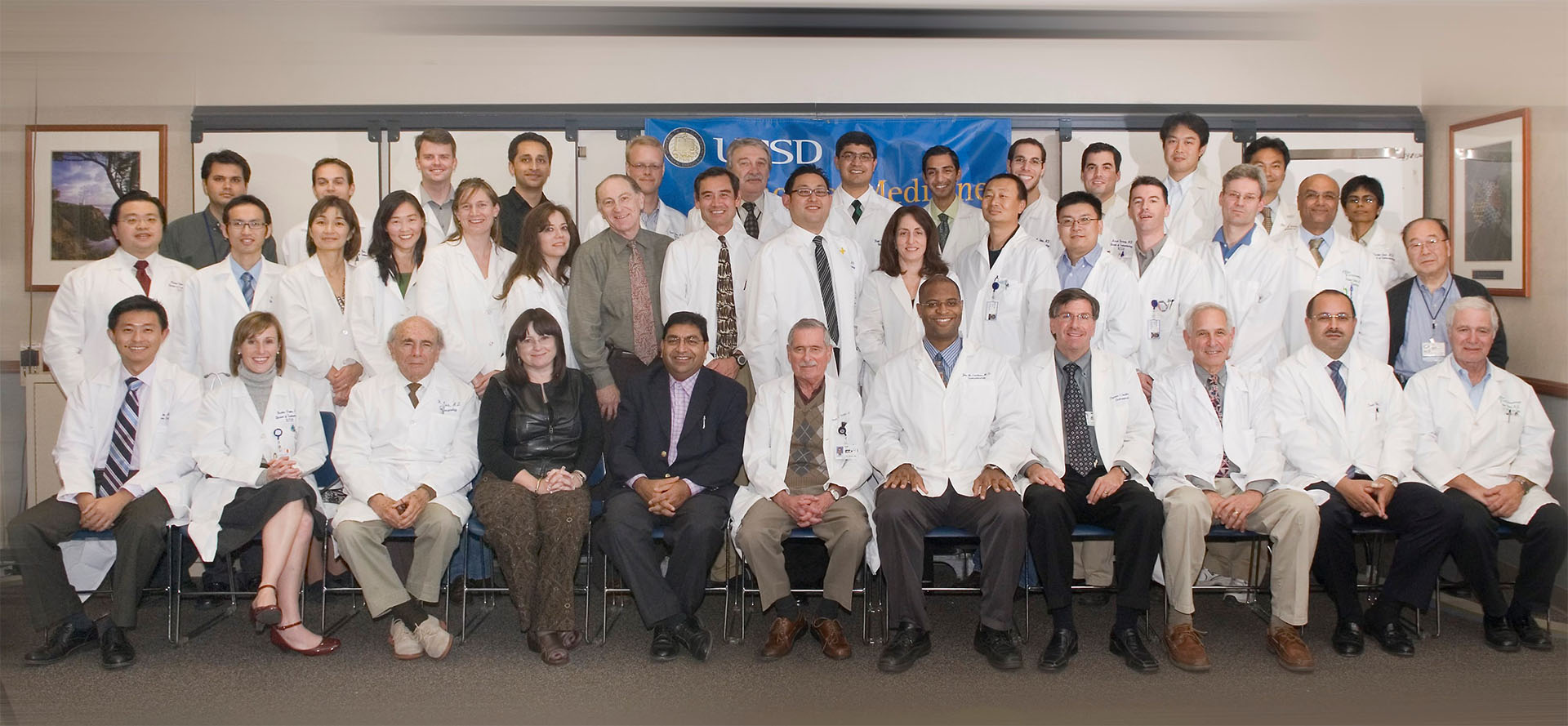
Key to each of these successes were Carethers’ strengths in uniting his team. “He’s uniquely skilled at building consensus and collaboration among disparate groups, and he does so with such ease and poise,” said Savides, who was named to the gastroenterology chief role in 2021.
New heights
It didn’t take long for institutions across the country to recognize Carethers’ achievements and attempt to recruit him. When he decided it was time for a new challenge, Carethers chose to return to his home state and serve as chair of the Department of Internal Medicine at University of Michigan.
In that role, Carethers oversaw 930 faculty and more than 1,000 departmental staff. He managed a $400 million annual budget, $250 million in annual external research grants and the integration of the department within the $5.8 billion University of Michigan Health System. Much like UC San Diego Health, the campus saw a significant physical expansion and a renewed emphasis on primary care during this time.
One of the areas of progress that Carethers is most proud of is his work in faculty affairs. Under his leadership, new programs offered training in biostatistics and how to launch clinical trials. Junior faculty endowments supported new hires, and faculty wellness programs fought against burnout. Through a new Clinical Excellence Society, faculty who demonstrated particular excellence toward patients and colleagues were formally recognized.
“My overarching goal is to promote the faculty in my department in what they do,” said Carethers.
If his mentoring legacy is any indication of his success, the long list of students and fellows he’s overseen speaks for itself. Many of Carethers’ trainees now hold leadership positions at major universities and in federal institutions. Many are women or members of other historically excluded groups.
“John brings out the best in people,” said Boland. At a gastroenterology conference, Boland found himself in a huddle of UC San Diego colleagues when the conversation turned to the topic of Carethers. A junior faculty member in the circle perked up to share a story.
While preparing a major grant application early in her career, she sent a message to the team at Moores Cancer Center asking if anyone had experience with this particular award.
“Not only did John respond, but he showed up at her office with a copy of his grant in hand, ready to help her with her application,” said Boland. “To have that kind of support from your boss and know that someone’s really pulling for you, that’s what John provides, and it stays with people.”
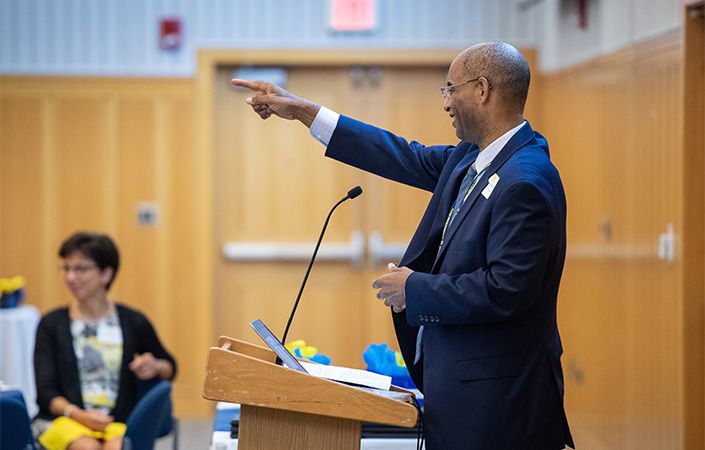
What’s next
After tremendous success as department chief, Carethers decided he was ready for the next opportunity. Across the country, UC San Diego leaders were beginning their national search for a new vice chancellor. The timing was fortuitous.
“I’ve never seen so many people excited to see someone come back,” said Boland, who made his own return to UC San Diego in 2017 as a professor of medicine.
“San Diego has always had a special place in my heart,” said Carethers. “I’ve gained a lot of experience since I was here last, so I’m excited to return and give back to this incredible team.”
As his vision for Health Sciences continues to take shape, Carethers notes several areas he’s already looking forward to addressing.
In research, he plans to focus on the need for more research space and facilitate increased collaboration between health sciences and other departments and schools on campus.
“A recent evolution in the field has been the use of huge datasets analyzed with bioinformatics and artificial intelligence tools,” said Boland. “If we’re going to stay on the cutting edge, we need a leader like John who can recruit new talent with fresh ideas, learn what these experts need, and help us all adapt and grow together.”
Carethers also hopes to increase research activity among clinicians and maintain an economic engine to support this. “Research and clinical care are symbiotic, both in practice and in economics, so we need to encourage and support that with transparency,” Carethers said.
Other immediate goals include raising funds to ensure that the quality and quantity of clinical services are maintained throughout the renovation of the UC San Diego Medical Center in Hillcrest. Carethers is excited to meet leaders and encourage further growth at the Herbert Wertheim School of Public Health and Human Longevity Science and Skaggs School of Pharmacy and Pharmaceutical Sciences.
“San Diego has always had a special place in my heart. I’ve gained a lot of experience since I was here last, so I’m excited to return and give back to this incredible team.”
In education, Carethers is committed to attracting the most outstanding medical and graduate students, and strengthening philanthropy and scholarships to make that happen. “Our students are the future, and if we want a bright and diverse group of trainees, we need to provide competitive scholarships to attract those from all sorts of economic backgrounds,” he said.
Carethers takes a similar approach to equity, diversity and inclusion among faculty and staff.
“We need to ensure there are consistent processes in place for faculty hiring, evaluation and retention,” he said. “It’s about creating an equitable and amiable culture, and then holding people accountable to it.”
“The fact that we have an African American at the top is really important,” said Boland. “Who can speak to racial disparities with more authority than someone who's been there? Who can create a comfortable, equitable environment like someone who knows what it’s like to be in the minority? He’s just the right guy for this kind of change.”
For many, Carethers’ arrival represents a chance to realign and reassess in preparation for the next chapter in Health Sciences history.
“UC San Diego has grown and transformed tremendously in recent years, so this is an opportunity to take a fresh look at our organization and how we can ensure all faculty members feel included, heard and valued,” said Savides. “John Carethers is the perfect person to lead us through that process and into our future."
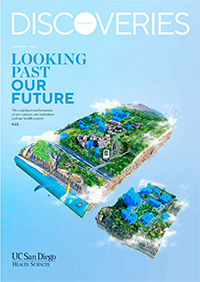
About Discoveries Magazine
This article was originally featured in the 2023 issue of Discoveries, the annual magazine from UC San Diego Health Sciences. Discoveries highlights the latest and greatest in the university's health science research, education and clinical practice. Other stories in this issue explore topics such as mindfulness meditation, wearable medical devices and a new education program supporting health equity for Native Americans.
Share This:
Stay in the Know
Keep up with all the latest from UC San Diego. Subscribe to the newsletter today.
